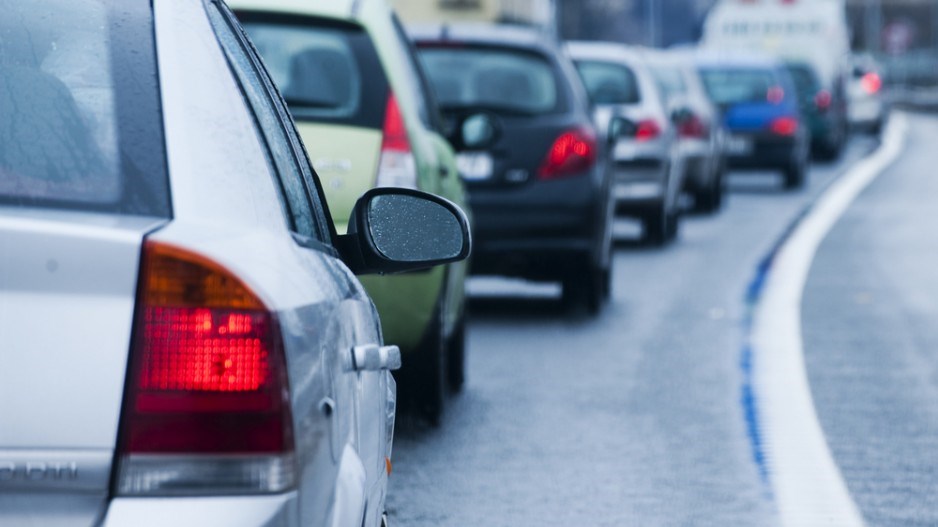Metro Vancouverites, wary of venturing too far out on the road and sitting in traffic, are losing as much as $1.2 billion annually in higher incomes, according to a study from C.D. Howe Institute.
The Toronto-based think-tank examined the hidden costs associated with the region’s traffic congestion, and determined further investment in transportation infrastructure would boost annual incomes by $950 per worker — or $1.2 billion total.
The March 9 study comes as the Mayors’ Council is urging a yes vote in a spring mail-in plebiscite. The council is proposing a 0.5% regional hike to the provincial sales tax (PST) to fund $750 million in additional spending over the next decade for transit and transportation.
While the Mayors’ Council have previously pointed to economic costs of congestion such as an increase in traffic accidents, the C.D. Howe report zeroed in on the “hidden costs” of people avoid travelling due to concerns over sitting in traffic. It concluded both the population and local businesses lose out on benefits such as face-to-face learning, sharing services and infrastructure.
“Because of congestion, workers do not take jobs that are the best fit for them. Companies lose out, because the pool of workers they may draw from is shallower than otherwise,” Benjamin Dachis wrote in the report, adding the region would benefit from higher incomes from a more flexible workforce if the Mayors’ Council plan was put into effect today.
“Those higher incomes, in turn, would boost provincial and federal income tax revenues by an estimated $150 million and $360 million per year — and those added revenues could partly finance the Mayors’ Council plan.”
Support for the plan has been tepid.
An online survey released March 9 from Insights West revealed 55% of Metro Vancouver residents would “definitely” or “probably” vote no in the plebiscite, while 33% would “definitely” or “probably” vote yes.
The survey found the highest levels of support were in Vancouver and Richmond (43%).
The vast majority of no voters (78%) said they did not have confidence in TransLink to do a good job with the 0.5% collected from the proposed PST tax hike.
On March 5, the Mayors’ Council announced B.C.’s richest businessman, Jim Pattison, would head a committee overseeing how the new funds were spent if the 0.5% tax increase was given the green light.
Just 3% of no voters said his presence on the committee would make them more likely to vote yes.




